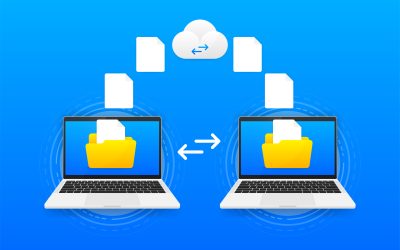Why is a non-disclosure agreement (NDA) so important for businesses? All businesses handle proprietary or confidential information that they just cannot afford to compromise. This means that organizations have to be extra cautious in all their dealings with external providers including back office outsourcing firms. When outsourcing business processes, you must ensure that a solid contractual agreement is drawn up with your service provider. This NDA will ensure that your trade secrets and other sensitive information are protected. It is a legal contract between the outsourcer and service provider which ensures that all sensitive business data is kept confidential. This agreement is usually signed at the beginning of a business relationship and it can be used by companies to restrict anybody from using critical information for ulterior motives.
Major Challenges Involved
Drawing up a non-disclosure agreement poses some challenges mainly because it may not be possible to enforce some legal clauses that may be common in U.S. law in outsourcing countries.Let us consider some of the major concerns in this regard.
- Many offshore outsourcing companies do not understand or attach due significance to the non-disclosure agreement. They consider it as a document to keep the secrecy of information about the product formula and design. According to them, the NDA does not protect the disclosed information from being exploited by other contractors in their personal interests.
- Some business organizations fail to specify the time period of the agreement and this makes their contractual agreement susceptible to breach in the long term. This occurs because the outsourcing company assumes the completion of the project as the end of the contract.
- Statutes in other countries often invalidate the protection offered by an NDA. As a result the contractual agreement may not be able to prevent disclosure of information if an independent party requests release of that information.
- The legal system for enforcement of different types of intellectual property (IP) rights is different in each country and sometimes even within the same country.
It is important to do a realistic assessment of the challenges of enforcing IP rights before building an outsourcing relationship. It is best to demand unmistakable provisions in the contract so that the service provider guarantees secrecy of confidential information. In case of breach of confidential data, it would result in termination of the contract; it could involve financial consequences as well.
What Entrepreneurs Must Know before Signing an NDA
- Do not use NDA templates available on the Internet: There are many NDA templates available on the Internet, which are in a generic format. Each business has its own requirements and so the NDA should be customized accordingly. There are mainly two types of NDA – the one way NDA, which has only one disclosing party and the mutual NDA where there are more than one party to exchange confidential data. Mutual NDAs are used for joint ventures and mergers.
- Limit sharing of information with people who are not involved in the NDA: NDA must have categories that show whether and when the information may be disclosed to a recipient who is not party to the contractual agreement. An NDA can limit the receiving party from sharing the information with people who are not authorized to receive the information.
- Court processes following a breach can be very tedious: You may have to go to court in case a breach has occurred in the terms in NDA. Court processes can be extremely tedious and time-consuming.
- NDA can control the receiving party from using disclosed information that is not authorized by the disclosing party: The disclosing party should define the sharing of information and also restrict the recipient from using the information in any manner that is not allowed by the NDA. It is always advisable to share information only to some extent and limit the disclosure to what truly needs to be shared.
If you are considering back office outsourcing, then take into account all the above mentioned criteria. It would ensure a safe and secure outsourcing experience without any critical information leak that may be harmful for the enterprise.




